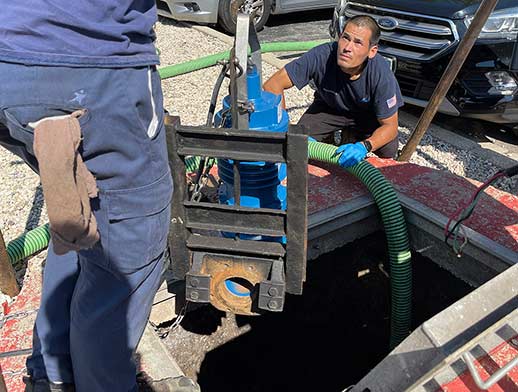
The sewer system in your commercial building performs the same function as that of a single-family or two-family home. But as Abilene Leasing & Property Management say this is where the similarities between commercial sewer systems and residential systems end. Commercial sewer systems are unlike residential sewer systems in many ways.
Commercial sewers handle larger volumes of wastewater because of the number of people who use them. They are much more extensive and complex than residential systems. Commercial systems should be robust because they must endure stresses not present in a residential sewer system.
Malfunctions in a commercial sewer system will affect more people than problems in a residential sewer system. The issues in the building’s sewers will not only damage the operations of the businesses located on the premises, but they can also hurt the well-being of its customers.
That is why it is vital to do proper due diligence when hiring a professional plumber for your commercial sewer repairs. Hiring the wrong plumber will make your sewer more liable to fail. This mistake also has the potential to increase your maintenance costs while shortening the lifespan of your sewers.
To prevent these negative outcomes, this post outlines eight essential questions you should ask a professional plumber before you hire them.
8 questions to ask a commercial plumber before you hire them
Are they licensed and certified?
The plumber must provide verifiable proof of being fully certified by a recognized organization. They should have the required permits and licenses to work in your location. It is a good idea to only work with plumbers who are local chapter members of their professional body. Don’t hesitate to ask for any information that will help you verify the claims of the plumber.
What is their specialization?
Never hire a residential plumber to do the work of a commercial plumber. Even when interviewing a list of commercial plumbers, you still want to ask about their area of expertise. That is because there are several different types of commercial property, each with its unique sewer systems. For instance, factory sewer lines can be very different from the sewer systems found in a retail center or multifamily dwelling.
How long have they been in business?
Experience is vital; it means the plumber has a repertoire of skills to handle diverse situations. But experience doesn’t just serve as a measure of the plumber’s competence. The experience offers a glimpse into how trustworthy a plumber is. An experienced plumber who has been operating in the same city for a long time can be trusted. Ensure the plumber’s experience is with sewer systems that are similar to yours.
Do they have any references?
If a plumber is competent and reliable, they will have a list of happy customers willing to vouch for them. These references should be people and businesses in your city; it makes it easier to visit them. You want to make sure the people on the list are the names and contacts of real customers. Do not hire a commercial plumber who will not provide references or whose references are unavailable.
Do they offer a maintenance plan?
Instead of a one-time event, a maintenance plan allows the plumber to maintain your sewer system on an ongoing basis. This kind of maintenance approach is better for many reasons. It helps you spot and solve problems with your sewers early. Secondly, it reduces the cost of maintaining the sewers. Lastly, it helps to reduce the wear and tear to prolong the life of your plumbing.
What kind of equipment do they have?
The right equipment will make the maintenance of your plumbing faster, cheaper, and more effective. The right sewer maintenance equipment is vital when working with commercial sewer systems. State-of-the-art equipment ensures quick and accurate diagnosis of problems. It also allows those problems to be solved with minimal inconvenience to the people in the building.
What about insurance and warranty?
Is there a warranty on the parts they supply? Do they offer a warranty for labor? What do they expect you to do if there are issues with a job recently completed by the plumber? Are you required to pay a second time to solve the same problem? Or will the plumber foot the bill to fix the issue? In addition to warranties, the plumber should be adequately insured.
How do they charge for their work?
Does the plumber expect you to pay a flat rate for jobs, or do they prefer an hourly rate? Flat rates are typically better since the plumber can work at a slower pace if they are being paid hourly. Because they know they will not be paid for working additional hours, a flat rate forces the plumber to make better use of time. You also want to know their terms of payment before you hire the plumber.
Finally, do not forget to evaluate the plumber’s responsiveness and ability to communicate properly.